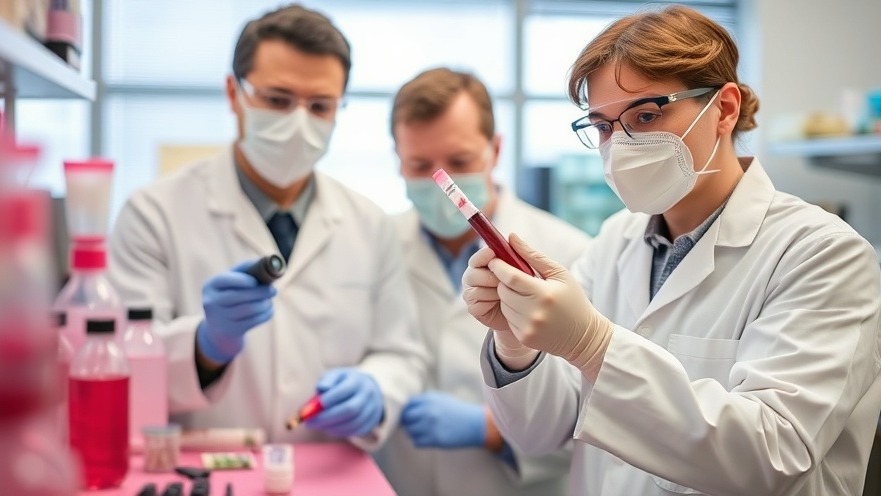
Revolutionizing Inflammation Detection: The Science Behind Antibody Development
In the landscape of modern medicine, inflammation is a crucial factor that underpins nearly every disease, from chronic conditions to acute responses. However, traditional blood tests have fallen short in pinpointing the specific locations of inflammation within the body. That is, until now. Researchers from Case Western Reserve University have made significant strides in developing a method that utilizes antibodies to detect inflammation, potentially paving the way for more precise blood tests related to various diseases, including heart disease, Alzheimer’s, and cancers. This innovative approach could also enhance drug discovery processes.
The Role of Reactive Oxygen Species in Inflammation
Understanding the new method's underpinning requires delving into the realm of reactive oxygen species (ROS). During instances of inflammation, immune cells release ROS as a strategy to combat bacteria and pathogens. However, exposure to external factors like UV light, pollution, radiation, and smoking can also elevate ROS levels, leading to oxidative stress and resulting damage to cellular structures such as DNA and lipids. The team's research highlights how these entities interact negatively with the body’s own compounds, revealing several pathways open for exploration in understanding inflammation.
Discovery of EKODEs: A Key to Understanding Inflammation
At the core of this breakthrough is a compound known as epoxyketooctadecanoic acid, or EKODE. Formed through the interaction between ROS and linoleic acid—which is abundant in cell membranes—these compounds showcase distinctive properties. The research led by Professor Greg Tochtrop uncovered how EKODEs can bond with cysteine, a nourishing nucleic acid, resulting in stable compounds that accumulate primarily in organs under oxidative stress. This fascinating discovery lays the groundwork for employing antibodies targeting these specific compounds.
Applications in Health Care: Disease-Specific Biomarkers
The implications of this research extend far beyond scientific curiosity. By developing antibodies that detect various EKODEs in tissues affected by inflammation, healthcare practitioners could gain invaluable insights into related disease states. This innovative detection method promises not just improved diagnostics but also enhances our understanding of how inflammation correlates with various health conditions.
Future Trends in Inflammation Research
As new findings emerge, it’s critical to consider the direction of future research concerning inflammation detection. The potential for routine blood tests offering disease-specific biomarkers could significantly transform clinical practices. Such advancements may allow for quicker, more accurate diagnoses, ultimately leading to tailored treatment strategies for patients. This shift could empower concierge health practitioners to offer enhanced care and foster better communication with their patients.
Cultural and Emotional Context of Inflammation Awareness
It’s essential to recognize that inflammation, albeit a medical term, affects lives on emotional and psychological levels as well. Patients often navigate a journey filled with anxiety when facing undiagnosed conditions. By improving the detection and understanding of inflammation through such research, healthcare providers can alleviate some of this unease, equipping their patients with knowledge and potential treatment pathways that were previously inaccessible.
Common Misconceptions Surrounding Inflammation
Despite the growing recognition of inflammation’s role in health, misconceptions abound. One widespread belief is that inflammation is purely detrimental. In reality, it serves as a vital player in healing responses. However, chronic inflammation can lead to significant health issues. By addressing these misconceptions through education and clearer dialogue, practitioners can foster better patient understanding and engagement.
Conclusion: The Future of Inflammation Research Is Bright
The innovative method developed by researchers at Case Western Reserve opens an exciting chapter in the field of inflammation detection. As this new technology unfolds, it presents an immense opportunity for health practitioners to enhance patient care through improved screening and diagnostics. The intertwining of science with healthcare practice not only enriches the medical community but also uplifts patient experiences. The journey toward discovering advanced methodologies for tackling inflammation continues, and it is one that all healthcare practitioners must follow closely to provide optimal care for their patients.
 Add Row
Add Row  Add
Add 






Write A Comment